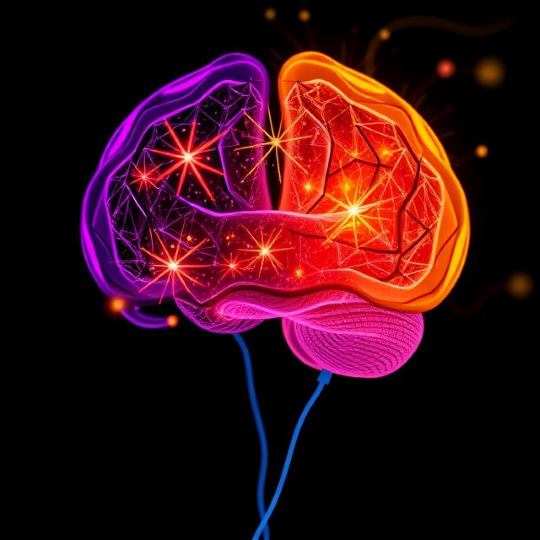
Emotional Intelligence (EI) is the cornerstone of personal growth, leadership development, healthy relationships, and professional success. At its core, EI is the ability to recognize, understand, and manage emotions—both in yourself and others. Whether you're looking to improve your self-awareness, emotional regulation, empathy, or interpersonal skills, understanding your emotional intelligence is the first step.
To help you on this journey, we offer a comprehensive free emotional intelligence test—also known as an EQ quiz, emotional quotient test, or emotional IQ test. This EQ assessment test measures key aspects of emotional intelligence such as self-awareness, empathy, and emotional regulation. By taking this emotional awareness test, you'll gain valuable insights into your emotional strengths and areas for improvement.
Our emotional intelligence assessment test is more than just a tool—it's a pathway to self-discovery and personal growth. Whether you're taking an EI test for leadership development or improving your interpersonal skills, this emotional EQ test provides actionable feedback to help you thrive in all areas of life. Best of all, it's a free EQ test you can take at your convenience.
Ready to test your EQ? Take our emotional intelligence quiz today and discover how your emotional quotient and intelligence quotient work together to shape your success.
Emotional Intelligence (EI) refers to the ability to recognize, understand, manage, and influence emotions in oneself and others. It plays a critical role in personal, social, and professional success, complementing cognitive intelligence (IQ). Below is a detailed breakdown of EI, its main theories, predictive power, overlap with IQ, and key theories.
Emotional Intelligence (EI) involves:
EI is a strong predictor of success and well-being in various domains:
Distinct but Complementary:
Overlap:
Research Findings:
| Aspect | Emotional Intelligence (EI) | IQ (Cognitive Intelligence) |
|---|---|---|
| Definition | Ability to manage emotions and relationships. | Ability to reason, solve problems, and learn. |
| Focus | Emotional and social skills. | Logical and analytical skills. |
| Measurement | MSCEIT, TEIQue, EQ-i. | IQ tests (e.g., WAIS, Stanford-Binet). |
| Predictive Power | Success in social and emotional contexts. | Success in academic and technical tasks. |
| Overlap | Weak correlation (r ≈ 0.1 to 0.3). | Distinct but complementary. |
Definition: EI is a set of cognitive abilities to process emotional information.
Four Branches:
Measurement: MSCEIT (Mayer-Salovey-Caruso Emotional Intelligence Test).
Definition: EI is a collection of personality traits related to emotional functioning.
Focus: Self-perceived emotional abilities rather than cognitive skills.
Measurement: TEIQue (Trait Emotional Intelligence Questionnaire).
Definition: Combines emotional abilities with personality traits.
Five Components:
Measurement: ECI (Emotional Competence Inventory).
Definition: EI is a set of emotional and social competencies that influence behavior.
Five Domains:
Measurement: EQ-i (Emotional Quotient Inventory).
Emotional Intelligence (EI) is a critical skill set that complements cognitive intelligence (IQ). While IQ measures logical and analytical abilities, EI focuses on emotional awareness, regulation, and social skills. The main theories of EI—Mayer and Salovey’s Ability Model, Goleman’s Mixed Model, Bar-On’s Model, and Petrides’ Trait Model—provide different perspectives on how EI functions and can be measured. EI predicts success in personal relationships, workplace performance, mental health, and academic achievement, making it a valuable asset in both personal and professional life.
This free EQ test is designed for informational and self-assessment purposes only. It is not a substitute for professional psychological evaluation, diagnosis, or treatment. The results of this emotional intelligence test are based on self-reported responses and should not be considered definitive or conclusive.
While this emotional quotient test aims to provide insights into your emotional intelligence, it is not a scientifically validated assessment tool. For a comprehensive evaluation of your emotional intelligence, please consult a licensed psychologist or mental health professional.
By taking this EQ assessment test, you acknowledge that the results are intended for personal reflection and growth. We are not responsible for any decisions or actions taken based on the results of this test. If you are experiencing emotional distress or mental health concerns, we strongly encourage you to seek professional help.
This emotional intelligence quiz is provided "as is," and we make no warranties regarding its accuracy, reliability, or suitability for any specific purpose. Your use of this test is entirely at your own risk.